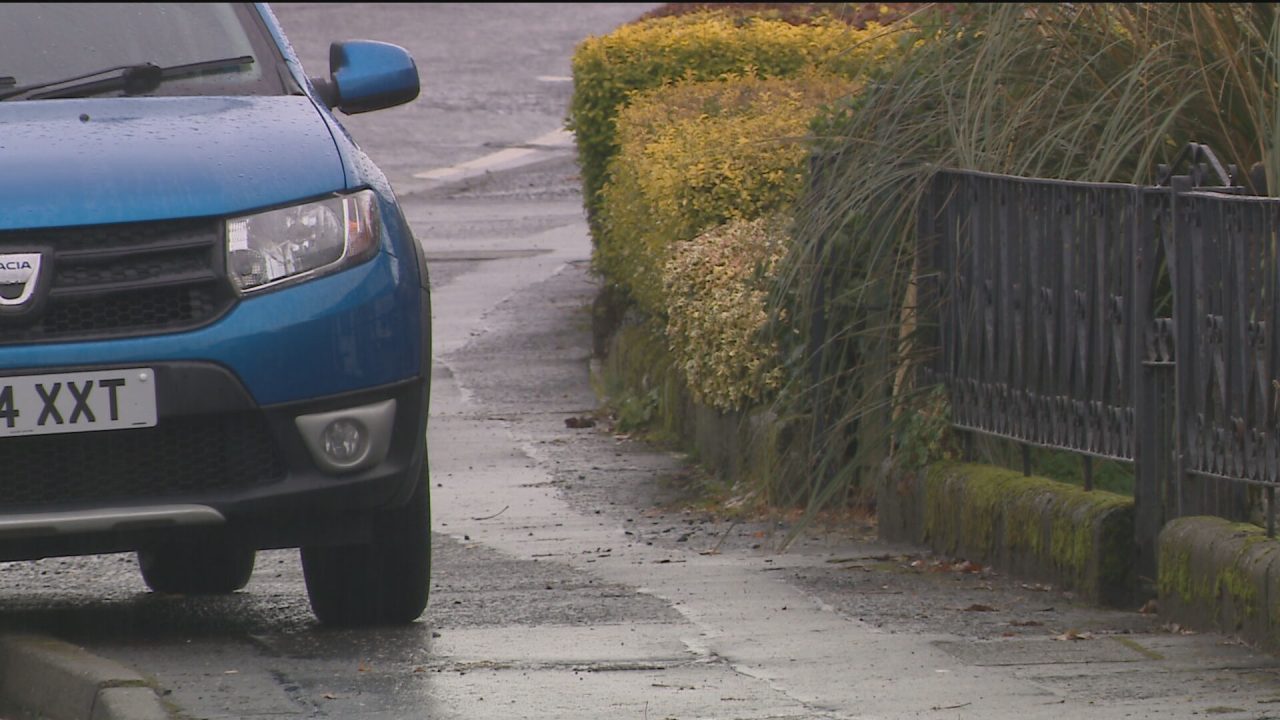Drivers could be fined £100 for parking on the pavement from Monday under new laws.
The Transport (Scotland) Act 2019 bans pavement parking, double parking and parking at dropped kerbs, with certain exemptions designated by Scottish councils.
It means that from Monday, December 11, councils across the country can begin enforcing the law.
As a result, drivers could be fined £100 for these parking behaviours; reduced to £50 if paid within 14 days.
A campaign to highlight the dangers pavement parking poses to pavement users was launched in November.
The Scottish Government’s minister for transport Fiona Hyslop said: “The message here is clear: pavement parking is unsafe, unfair and illegal, and you could be fined up to £100 for it.
“Local authorities can begin to issue fines from December 11, so this campaign is really important to make sure everyone in Scotland is aware that enforcement is coming.
“We’re highlighting the danger that illegal pavement parking poses to pavement users, and in particular those with mobility issues or visual impairments, or parents pushing prams and buggies.”
Mike Harrison, a wheelchair user following a cycling accident 17 years ago, said: “Vehicles on the pavement can be just a nuisance and they can be a severe obstacle. It increases my journey time, I’m often in danger of scratching my hands on a wall, or vegetation sticking out makes it difficult to get past.
“Once you’re on the road, of course, you’re more vulnerable, especially if the traffic is coming up behind me.
“The new enforcement will make it clear to people what is required and will make journeys safer and more convenient.”
Michael Tornow from Peebles, who is blind and has a guide dog, added: “Pavement parking makes me frustrated. It’s just very tiring trying to navigate around parked cars. And not just for me, but for others – people in wheelchairs, people pushing buggies. It’s just not very considerate.
“As somebody who is completely blind, that’s meant stepping out into the road. That’s obviously quite dangerous, sometimes not being able to hear because of traffic noise.
“I also have to try and work out myself, without being able to see, where I can then step back onto the pavement.
“I hope the new enforcement will make people understand that pavement parking is both unsafe and unfair. Without cars on the pavement it will be easier and safer for me to get around.”
Living Streets Scotland, part of the UK charity for everyday walking, has called on local authorities in Scotland to implement the ban properly following concerns that some councils plan mass exemptions and have limited plans for enforcement.
Stuart Hay, director of Living Streets Scotland said: “Parking on the footway is inconvenient for us all and incredibly dangerous for older and disabled people, who are forced into the road and oncoming traffic. Scotland is leading the way by becoming the first UK nation to say enough is enough and introduce an explicit ban, now we need to make sure we get it right.
“Mass exemptions seriously undermine the ban and will put people at risk if they aren’t introduced following rigorous assessments and consultation. Ongoing promotion of the ban and engagement with communities is also vital to ensure the implementation is effective.
“Without sufficient enforcement capacity many groups including disabled people will feel badly let down. We want to see targeted and proactive action in known hotspots where pavements need cleared of obstructing cars.”
Follow STV News on WhatsApp
Scan the QR code on your mobile device for all the latest news from around the country




























